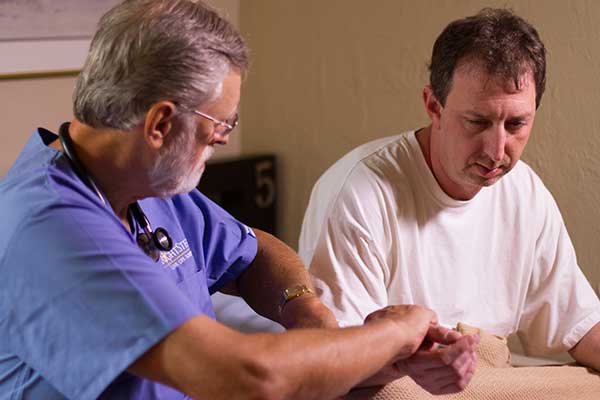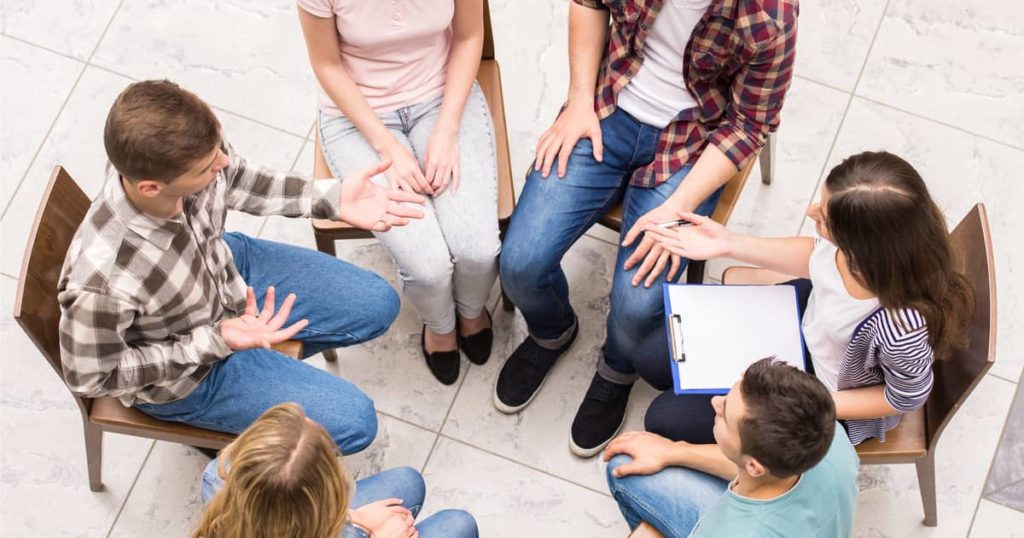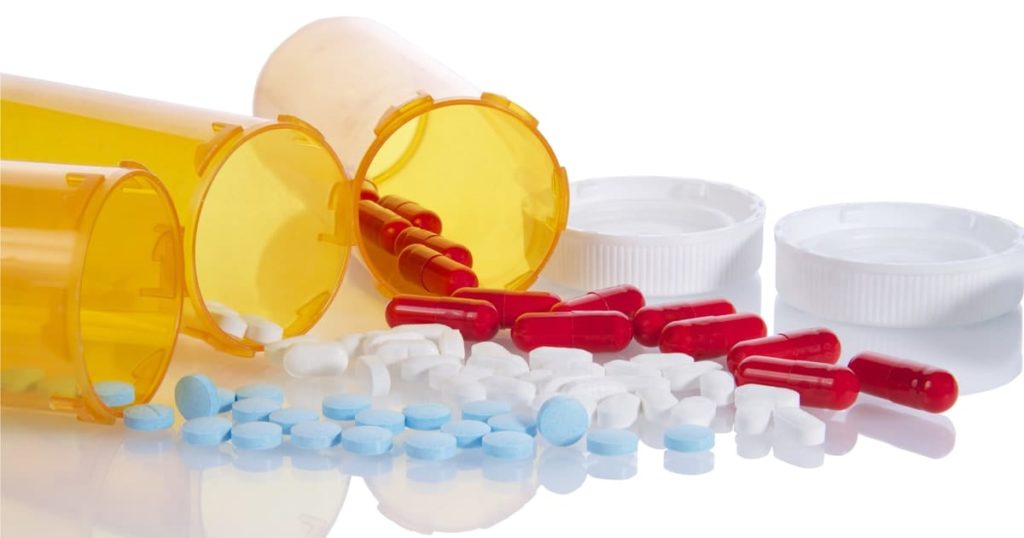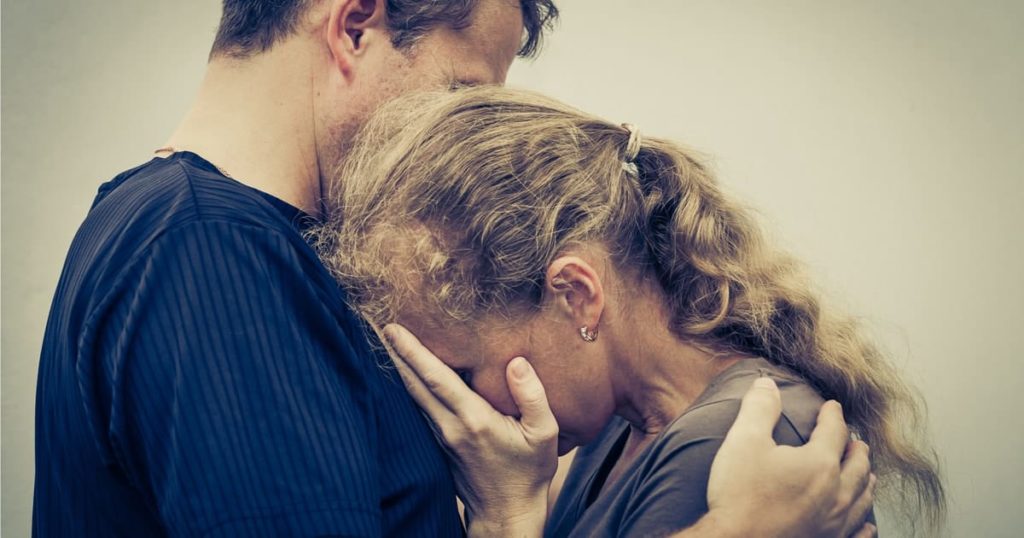The Right Step Houston is a mainstay in the Houston recovery community. Due to Hurricane Harvey, all seven of our Houston-area alcohol and drug rehab centers were evacuated and shortly thereafter reopened. While our staff and clients are safe and we are grateful to be open and serving clients and their families, our hearts and thoughts go out to everyone in the Houston community struggling in the aftermath of what looks to be the worst U.S. natural disaster in history. News sources say that as of Sept. 1, the storm had displaced more than 1 million people and that by Labor Day, there were nearly 60 storm-related deaths, and this number is likely to grow. In addition, record-high river levels knocked out the drinking water supply in Beaumont, a city of about 120,000 people. Experts predict the damage caused by Harvey will reach a mind-boggling $190 billion, which is more than the combined cost of Hurricanes Katrina and Sandy. Despite the colossal loss of property and tragic loss of life, we are constantly reminded of the indomitable human spirit. Every day, amazing tales of survival, resilience of residents and heroism among emergency responders and volunteers are broadcast across the nation and world. In addition to government entities and major corporations, small organizations, sports teams, celebrities and average folks have opened their hearts and pocketbooks. Houston is grateful to all those who have graciously volunteered and continue to do so to help the city recover. As experts in addictions and mental health, we understand a natural disaster of this scope can trigger relapses for those in recovery. Losing everything is heartbreaking for anyone, but for people with mental illness, addictions or any other chronic health problems, something this traumatic can result in far worse than the loss of possessions. If your treatment was suddenly uprooted due to the hurricane, don’t lose hope – there are organizations that can help. Here is a list of resources for people in need of mental health care, medical care, food, shelter and other resources.
- Suicide Prevention The National Suicide Prevention Lifeline is a national network of local crisis centers providing free and confidential emotional support to people in suicidal crisis or emotional distress, 24 hours a day, 7 days a week. Call 1-800-273-8255; Deaf and hearing impaired: 1-800-799-4889 and Español: Cuando usted llama al número 1-888-628-9454.
- Addiction Hotline The Right Step is here for you, 7am – Midnight CST at 1-844-768-0396. If it’s after midnight, leave a message and we will call you back as soon as possible during the next business day hours.
- FEMA Assistance Register online at www.DisasterAssistance.gov or call 1-800-621-3362. Download the FEMA Mobile App to receive alerts from the National Weather Service, get safety and survival tips, customize an emergency checklist and find local shelters.
- Red Cross Both Texas-based and out-of-state branches of the Red Cross have been instrumental in recovery efforts and disaster relief in the wake of Harvey. A list of open shelters is posted on their website in addition to other resources. You can receive disaster assistance from the Red Cross by calling 1-877-500-8645. As of Sept. 1, the Red Cross had arranged shelter supplies for more than 75,000 people with more in process. They have also served more than 392,000 snacks and meals and deployed over 2,300 disaster workers with an additional 700 on the way.
- Legal Aid With 185,000 homes destroyed in Houston alone, organizations that provide pro bono legal and insurance assistance are overwhelmed. Legal-aid attorneys and hotline workers are encouraging people to begin the process of making claims for hurricane damages. Free services include answering questions, providing legal advice and helping people complete assistance applications for FEMA, SNAP, Disaster Employment Assistance and other recovery programs. Other free, invaluable services include helping people replace important lost documents, enrolling children in schools that have not been evacuated, and avoiding contractor scams when it is time to rebuild. Lone Star Legal Aid’s offices were damaged and closed due to flooding, but you can contact them through their Facebook page. Displaced residents can access Lone Star services at NRG Stadium, George R. Brown Convention Center and Toyota Center.Call the State Bar of Texas legal hotline at 1-800-504-7030 for answers to basic legal questions in English, Spanish or Vietnamese. If you need a lawyer, call the State Bar’s Lawyer Referral & Information Service at 1-800-252-9690.
- Shelter/Housing Assistance About 25,000-40,000 of the 250,000 victims of Hurricane Katrina who were graciously welcomed by the Houston community made the city their permanent home. Twelve years later these individuals find themselves in the same situation again. As already mentioned, as of Sept. 1, an estimated 1 million people had been displaced by the hurricane. Some are lucky enough to have relatives or friends who can accommodate them temporarily. Dozens of shelters have been set up in Harris County, the two largest at NRG Center and the George R. Brown Convention Center. Mosques and charitable organizations were among first to open their doors to offer supplies and shelter. Some people have left shelters to return to their homes, only to find nothing left. Find an open local shelter by texting SHELTER and your zip code to 4FEMA (43362).FEMA is offering loans to help homeowners rebuild and short-term housing assistance. They also can arrange hotel rooms and rental subsidies for people whose homes are uninhabitable or inaccessible. National Flood Insurance Program claims are being expedited, but the program only benefits people who had coverage prior to the storm.
- Medical Care As of Monday morning, 2,825 individuals had been transported from health care facilities affected by Harvey. Texas Mobile Medical Units responded to 324 cases and transferred 100 individuals to health care facilities. Governor Greg Abbott approved a waiver allowing Texas hospitals to exceed their licensed bed capacity to provide care for evacuees. Medical shelters for people who need specialized medical care are open in Houston, San Antonio and Austin. Some closed hospitals have reopened for emergency or full services, but there are hospitals in affected areas that remain closed. People who have a medical emergency should call 9-1-1. To locate an operating dialysis clinic, contact the End Stage Renal Disease Network of Texas at 1-866-407-3773.
- Medication The first shipment of more than 3,750 pounds of diabetes supplies arrived in Houston Friday afternoon. While these were distributed over the Labor Day weekend, additional shipments are in the works via a critical partnership between the American Diabetes Association (ADA), JDRF and Insulin for Life. In Houston, the George R. Brown Convention Center and NRG Center are hubs to receive shelter, medication, clothing, legal aid and many types of services.
- Food Assistance For a list of food pantries and other food assistance, contact the Houston Food Bank or call 1-832-369-9390. If you would like to donate money, food or time. Despite suffering flooding and closing their main location, the Houston Bank has now reopened. It is committed to providing food and supplies short term and in the months to come to residents in southeast Texas who are struggling to rebuild their lives.
Want to Donate or Volunteer?
The Federal Trade Commission wrote in an alert to consumers, “It’s heartbreaking to see people lose their lives, homes, and businesses to the ongoing flooding in Texas. But it’s despicable when scammers exploit such tragedies to appeal to your sense of generosity.” Before donating to smaller charities, look up the charity at the Better Business Bureau’s (BBB) Wise Giving Alliance, Charity Navigator, Charity Watch, or GuideStar to see how much money helps natural disaster victims. Indicate that you wish to have your donation earmarked for Hurricane Harvey. Market Watch has additional tips for avoiding scams.
- Red Cross Help people affected by Hurricane Harvey by visiting redcross.org, calling 1-800-RED CROSS or texting the word HARVEY to 90999 to make a $10 donation. The agency cannot take in-kind donations due to the exorbitant costs associated with storing, sorting, cleaning and distributing donated items. The Red Cross is still looking for volunteers to help with disaster relief.
- Houston Food Bank The drop-off location for donations is the organization’s main entrance, 535 Portwall Street. Donations are accepted Monday to Friday, 8 a.m. to 6 p.m. and Saturday and Sunday, 8 a.m. to 3 p.m. A list of items needed is available here, but they cannot take clothing, household items, baby food or anything else not on the list. They are also looking for volunteers. Prospective volunteers should register online before heading out to the food bank. Anyone younger than age 16 must be accompanied by an adult (parent or guardian).
Visit the Texas Department of State Health Services for ongoing hurricane updates and important flood-related measures to protect your health and well-being. Call the United Way Helpline at 2-1-1 for information on services available in your area. Additional resources are available by clicking here. If you were at an inpatient treatment facility that was evacuated or have a mental illness and find yourself without medication, it can be especially difficult. Several news accounts have recounted people at the convention center saying they don’t have their usual psychiatric medications and are struggling to handle the trauma of the storm. Emergency officials have asked social workers and other mental health professionals to help out at shelters. Sometimes it helps to know you’re not alone. Remember, our addiction experts are a phone call away at [phone].






